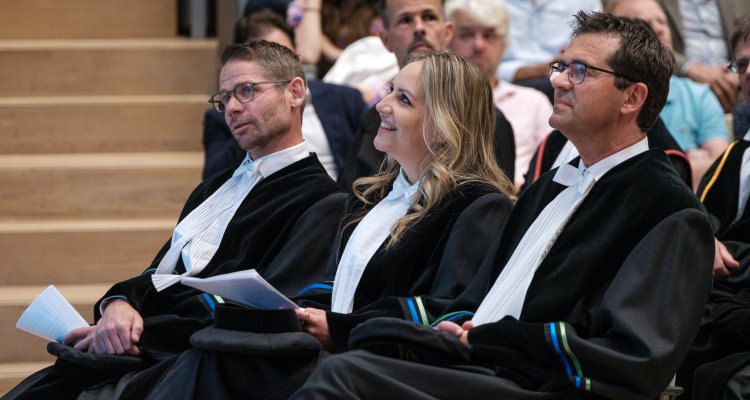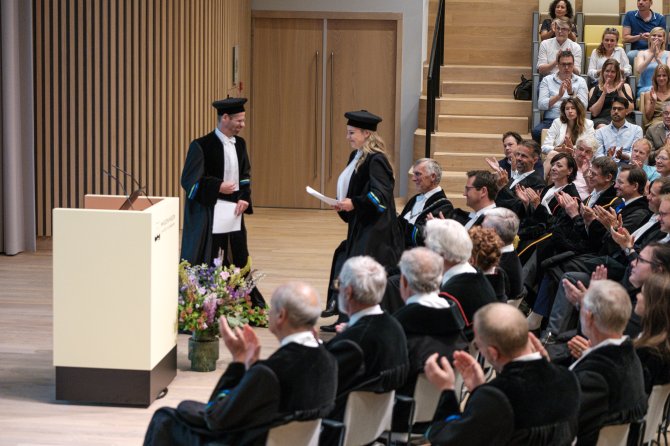
News
Inaugural speech by Sanne Kruikemeier and Rens Vliegenthart: 'Social media can also be depolarizing'
'They will always exist: fierce discussions on social media. But we can also use media to bring people closer together,' argue professors Rens Vliegenthart and Sanne Kruikemeier. Together, they are building a strong teaching and research profile of the Wageningen University & Research Strategic Communication chair group. Their inaugural speech was hold on June 15.
The duo of Kruikemeier and Vliegenthart left the University of Amsterdam and have a new challenge: to add an impetus to Wageningen's research into communication processes surrounding important social issues. Vliegenthart is doing so as Chair of Strategic Communication and Kruikemeier as Professor of Digital Media and Society. The chair group focuses on the role that (digital) media plays in opinion and policy formation, and in behavioural change related to important social themes such as sustainability, health and the environment.
Polarisation
"Media is here to stay: we spend hours a day scrolling through apps on our phones," says Kruikemeier. "Media, therefore, influences what topics we find important and how we are politically active. Right now, for example, opinions on climate change are constantly being expressed on social media. We are investigating whether that fuels polarisation and what impact this has on society." Vliegenthart adds: "People experience polarisation in the debate. But perceived polarisation is higher than actual oppositions.
Our research shows that a small group of people really radicalise and oppose the government. We are trying to identify exactly in what ways people differ in terms of content, but also the extent to which they have negative opinions about dissenters."
Sustainability Communication
In their work, the researchers complement each other well. Vliegenthart: "It was very logical for us to take the step towards WUR together. Sanne's expertise is more focused on social media. My expertise is aimed somewhat more at traditional media. Both play, often in interaction, a hugely important role in shaping people's opinions and behaviour. How the large amount of information people encounter daily - has an effect - is a fascinating question." Kruikemeier adds: "In addition, we have a whole group of colleagues around us with whom we continue to build content for this chair group. Fellow researchers from other disciplines are eager to engage in collaboration. They want to know how they can use communication, for example, to get people to be more conscious about their use of clothing. Sustainability communication, alongside polarization, is one of our research themes."

"The topics we research are urgent," continues Vliegenthart. "Our work really means something. Take, for instance the perception of agriculture and nitrogen emissions. That partly determines political decision-making. That's what makes our work so fascinating." Kruikemeier: "Indeed, we have plenty to do in the future. Certainly also when it comes to how you can use social media to have substantive discussions. For example, you could use moderation to set up your social media so that discussions remain civilised."
Framework: science communication
Another topic that the Strategic Communication chair group focuses on is science communication. It's about the role of experts in public debates and trust in science. Kruikemeier: "We study the way scientific knowledge is communicated in traditional and social media and how this is adopted by citizens and politicians. For example, which scientific knowledge is picked up and which is not. And when does this lead to discussions and when less so."